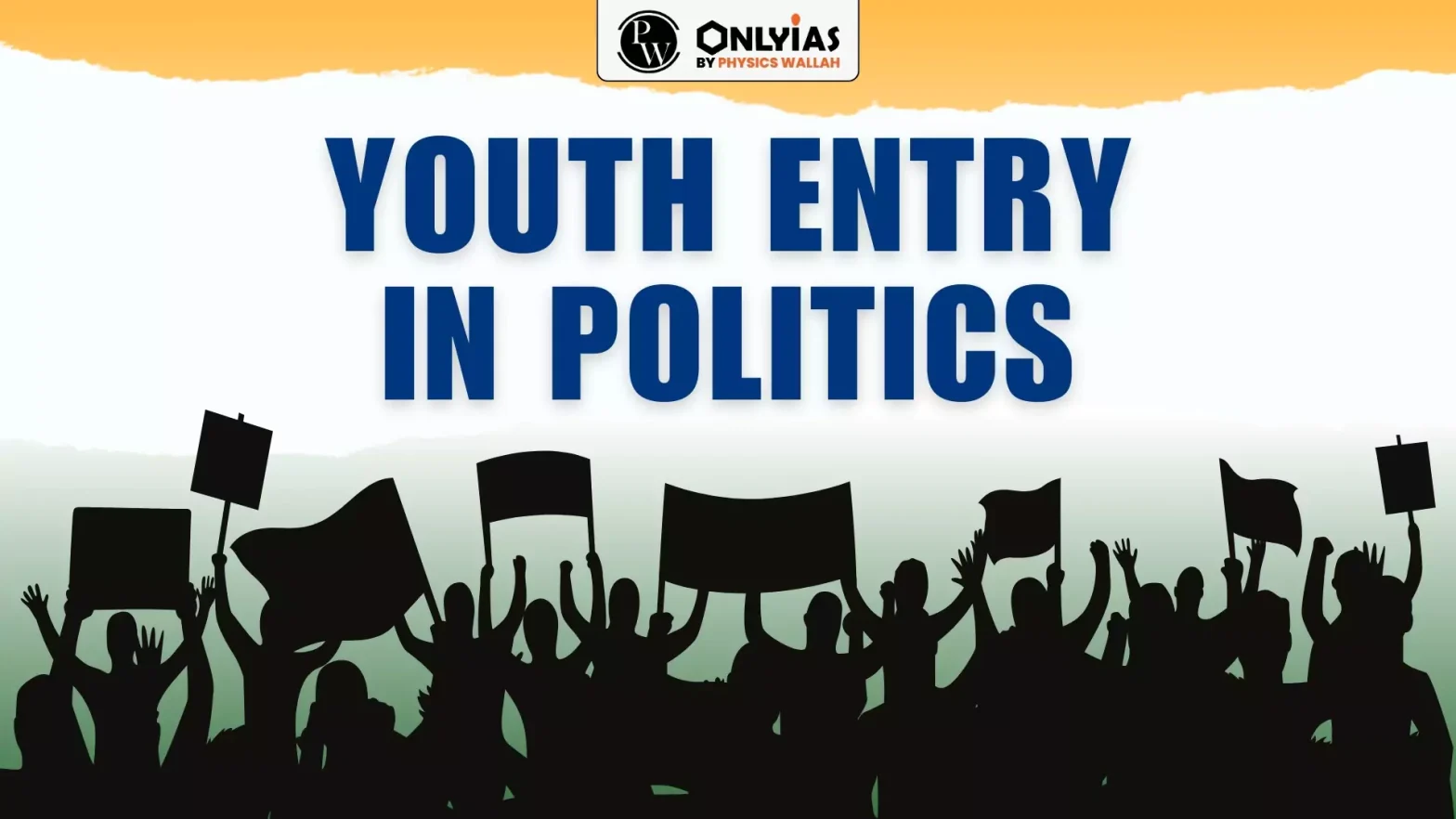Prime Minister Narendra Modi, during Independence Day 2024, called for integrating one lakh youth with no political lineage into politics. He emphasised that this initiative aims to bring fresh ideas and capabilities while combating casteism and dynasty politics in India.
Important Facts
- Examples of Youth in Global Politics:
- Gabriel Attal, age 34, is the youngest Prime Minister of France.
- Gabriel Boric, age 37, is the youngest President of Chile.
- Sanna Marin became the youngest female Prime Minister of Finland at the age of 38.
- Despite the global trend of youth leadership, India lags behind in incorporating younger individuals into significant political roles.
- Youth in Indian Politics:
- The average age of MPs in the present Lok Sabha is 56 years.
- There are only 3 MPs aged 25 years or younger in the entire Lok Sabha.
- India is often described as “a young country with old politicians.”
- Only 11% of MPs in the present Lok Sabha are 40 years old or younger.
These facts highlight the need for more youth involvement in politics and align with Prime Minister Modi’s vision.
Enroll now for UPSC Online Course
PM Modi’s Vision for Youth in Politics
- The aim is to free Indian politics from nepotism and casteism.
- There is a plan to integrate 100,000 youth without political backgrounds into the political system.
- Currently, youth are mostly seen as voters rather than candidates in Indian politics.
- There is a lack of youth perspective on political issues.
Importance of Youth in Politics
- Fresh Perspectives and Issues: Youth bring new perspectives and address issues such as education, unemployment, and income gaps. In India, youth-related issues often get sidelined because the youth themselves are not adequately represented in politics.
- Historical Importance: Historically, youth have played crucial roles in India. Figures such as Subhash Chandra Bose and Jawaharlal Nehru were pivotal during the freedom struggle. B.R. Ambedkar also played a significant role in post-independence reforms.
Current Young Politicians in India
- Tejasvi Surya
- Kanhaiya Kumar
- Raghav Chadha
Despite this, the proportion of young politicians remains low.
Check Out UPSC NCERT Textbooks From PW Store
Reasons for Low Youth Participation in Indian Politics
- Dynastic Politics: Power often remains within families, with political positions being passed down through generations. Examples include the Nehru-Gandhi family, Hooda family, Chautala family, Yadav family, Paswan family, Abdullah family, and Thackeray family. This trend persists across various parties.
- Financial Constraints: As noted by Atal Bihari Vajpayee, Indian politics has shifted from “Jan Tantra” (people’s rule) to “Dhan Tantra” (money rule). The financial burden of campaigning and obtaining party tickets often excludes those without strong financial backing.
- Social Pressure and Cultural Norms: Risk-taking in politics is often viewed negatively. There is a preference for secure career choices, and politics is perceived as the domain of elders with experience, rather than a field for youth.
- Lack of Political Education and Corruption: The absence of practical political education in the Indian system, combined with a negative image of politics due to corruption, discourages youth participation.
- Fear of Backlash: Many young people fear expressing their political views due to concerns about criticism from established authorities and potential impacts on their career prospects.
- Cultural Norms: Many cultures view politics as a field best suited for experienced individuals, often sidelining younger candidates.
Mediums to Enter Politics
- Movements and Protests: Historically, many politicians entered the field through activism. Examples include the 2011 anti-corruption movement, which led to the formation of the Aam Aadmi Party, and the Assam Gana Parishad.
- Student Politics: Many leaders, including Atal Bihari Vajpayee and Kanhaiya Kumar, emerged from student politics. The Chief Minister of Telangana also has a background in student activism.
- Activism: Activism can serve as a gateway to political entry.
- Social Media Platforms: Social media enables youth to express themselves and connect with like-minded groups, potentially facilitating their entry into politics.
Enroll now for UPSC Online Classes
Conclusion
As Plato famously said, “Most of the social and political ills from which you suffer are under your control, given only the will and courage to change them.” Engaging youth in politics is essential for addressing contemporary issues and revitalising the political landscape. Encouraging youth participation can bring fresh perspectives, address youth-specific problems, and lead to a more dynamic and representative political system.
![]() 23 Aug 2024
23 Aug 2024
